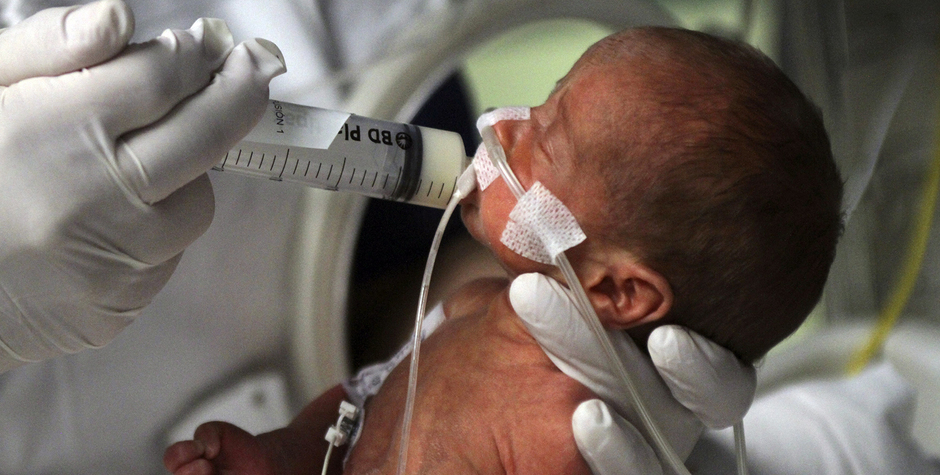Congressional Investigation Reveals New Evidence of Potential Criminality in the Abortion Business
New evidence was disclosed this week that further proves abortion clinics have profited from the sale of aborted baby body parts. Despite the abortion lobby’s attempts to drown out the facts with distracting and deceptive tactics, the House Select Investigative Panel on Infant Lives uncovered hard evidence detailing a profitable relationship between abortion clinics and fetal tissue procurement companies.
Under federal law, it is unlawful to profit from the sale of fetal tissue. Title 42 USC § 289g-2 reads, “It shall be unlawful for any person to knowingly acquire, receive, or otherwise transfer any fetal tissue for valuable consideration if the transfer
affects interstate commerce.” The statute goes on to explain the only costs that may be reimbursed are costs for “transportation, implantation, processing, preservation, quality control, or storage of human fetal tissue.”
The problem with the shocking marketplace uncovered by the Center for Medical Progress and now the House investigative panel? Procurement companies covered all of the costs themselves, even going so far as sending their own technicians out to abortion clinics to harvest organs. The clinics thus had no costs for which they were entitled to compensation under federal law. Yet, by their own admission, these clinics were receiving payments, often large sums, from the fetal tissue procurement companies.
The documents released by the House Panel reveal that the relationship between abortion clinics and procurement companies was intentionally designed to be profitable. Two documents entered into exhibit at the hearing, for example, were advertisements promising to make abortion clinics “financially profitable” through the harvesting of aborted baby organs and claiming a partnership with the procurement company would contribute to the “fiscal growth of your own clinic.”
Additionally, the documents showcase how the companies peddle the baby body parts from abortion clinics to the medical research community. One exhibit includes a company’s website with a drop down menu listing the type of organs and tissues available for purchase. The page looks similar to what you would see on any online shopping site, except that this site is trafficking baby body parts!
Isn’t it ironic that these groups see the sum of a baby’s parts as greater than her whole? Each limb and organ will sell for top dollar in the fetal tissue market, yet when she is whole and thriving in her mother’s womb she has no value according to the abortion industry?
Senator Ben Sasse (NE) testified at the hearing, saying:
I am unashamedly pro-life. I understand that others disagree. Our disagreement over abortion will sometimes be heated, but wherever possible, we should look for consensus.
Here, on this basic reality, we can and must find agreement: Babies are not the sum of their body parts. Babies are not meant to be bought. Babies are not meant to be sold.
This is an issue that shouldn’t even be debated – people shouldn’t be making money from the sale of body parts of aborted babies. Even the federal law banning the sale of fetal tissue was supported with bipartisan consensus when originally passed.
In addition to the immorality and possibly illegality of the fetal tissue procurement scheme, documents released at the hearing also raised questions about the exploitation of mothers during the process. At the House hearing, Representative Mia Love (UT-4) expressed her concern for the rights and well-being of the mothers who are targeted by the abortion industry to pad their pockets, contrasting it with the legal and transparent procedures of adult organ donation:
On the other hand, when it comes to fetal tissue donation, it’s different. A scared, vulnerable woman, including a minor who is underage, can come into a clinic on the morning of her surgery and first she needs to give consent to the procedure without any parental guidance or anyone there.
Then, before the event, before this invasive procedure a tissue technician comes to her and gets her to donate her baby’s body parts instead of an unbiased counselor. The tissue technician may be focused on making a commission rather than protecting that woman’s best interests.
Neither mothers nor their unborn children are treated with the inherent dignity they deserve in this grotesque profit scheme devised by abortion clinics and procurement companies. While Planned Parenthood and other abortion advocates scream from the rooftops that they are empowering women, they continue to quietly prey upon women when they are most vulnerable, exploiting mothers and their babies for profit.
The hearing proved what the investigative journalists from the Center for Medical Progress have been saying all along – abortion clinics are profiting from the sale of aborted baby body parts at the expense of the rights of mothers and the dignity of their babies.
When the investigative journalists began exposing this practice, the country was shocked. Congress is now acting and uncovering evidence implicating abortion clinics and these tissue procurement companies.
Justice must be served, not for any political points, but for our nation’s humanity and for the protection of our society’s most vulnerable.
At the ACLJ, we continue working with Members of Congress, pressing for a thorough investigation into the underbelly of the abortion industry and its quest for profits and death. We are also representing one of the former board members of the Center for Medical progress in multiple federal courts. Planned Parenthood and its abortion lobby allies are trying to silence the truth about their abhorrent practices.
Last week we filed opening briefs in the Ninth Circuit Court of Appeals to ensure the truth about abortion comes to public light. On Monday, we are filing another major motion to dismiss Planned Parenthood’s warrantless attack on pro-life advocates. Big abortion’s actions should not be swept under the rug.
